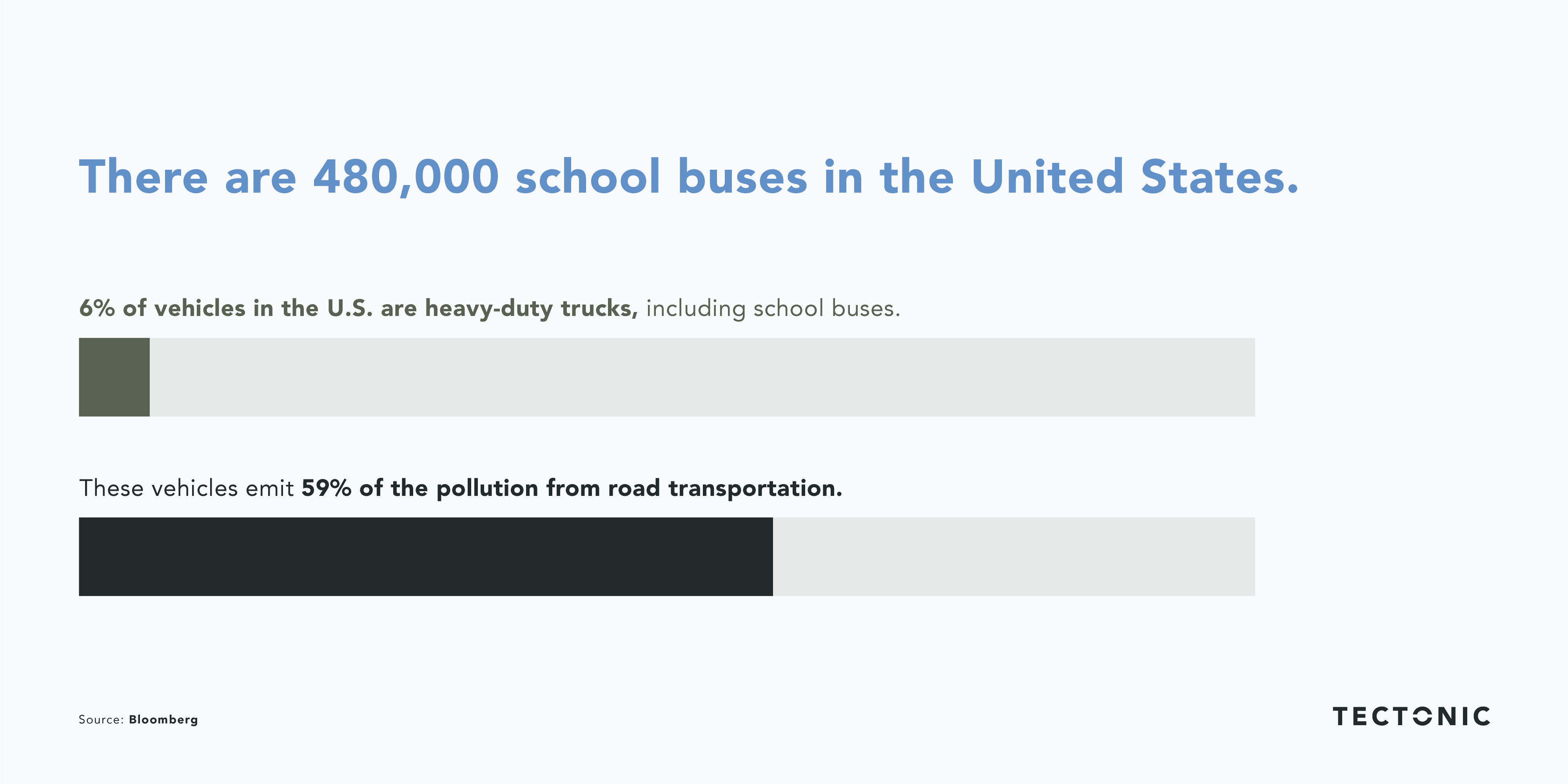This week, we're exploring how airlines use AI to optimize routes, one hotel chain's efforts to restore coral reefs, and a new book outlining an optimistic future if we embrace climate action.
Airlines using AI to combat contrails: In 2022, an IPCC report estimated that 57% of aviation's global warming impact came from contrails, which form when water vapor condenses around jet-engine pollutants. With Google Research, Breakthrough Energy, and MIT’s Department of Aeronautics, airlines are now leveraging predictive analytics to study contrail formation, predict when and where they form, and optimize routes to reduce their creation. In one experiment, a model leveraged data from a previous flight to suggest a return route, and tests showed planes on that route successfully avoided producing contrails.
The magic school buses: In Oakland, California, the nation’s first all-electric school bus fleet of 74 buses will also supply the Bay Area power grid with 2.1 gigawatt-hours of electricity. The buses, developed by a Silicon Valley company called Zūm, will reduce carbon emissions by about 25,000 tons annually and provide enough power for 300-400 homes during peak power usage.

Checking into nature: Megan Morikawa, a Stanford-educated marine biologist who now serves as the global director of sustainability for Iberostar Group, is working to make the resort company’s 97 properties across 14 countries greener. Morikawa is helping the hospitality company build coral research labs and embrace technology to reduce kitchen waste. More than 50% of corals have been lost since 1950, and with a warmer, more acidic ocean, the planet is projected to lose 90% of all coral by 2050. With three coral labs and seven underwater nurseries, Iberostar harnesses ecotourism to engage their hotel guests while supporting research and a genetic bank to scale climate-resilience coral reefs.
A new book tells the story of a better climate future: In her new book, “What if We Get It Right?” Dr. Ayana Elizabeth Johnson, a marine biologist and founder of the Urban Ocean Lab, discusses promising climate solutions and possibilities with leaders across the sector. In an interview with the New York Times, Dr. Johnson stresses that the climate conversation fails to motivate support when it centers on sacrifice but rather should focus on the “opportunity to live a different and better life.”
“There’s a million things we could do. It’s just a matter of shifting the status quo, building the political will, shifting the culture in order to make all of these things happen as quickly as possible. There’s room for innovation, but there’s absolutely nothing that we need to wait for.”
- Dr. Ayana Elizabeth Johnson interviewed by David Marchese in the New York Times, May 18, 2024
A critical shortage of critical materials: A new report from the International Energy Agency outlined how industries vital to the green transition will face a scarcity of critical metals and minerals. The shortages are expected to impact the production of electric vehicles, batteries, wind turbines, and solar panels. In one example, the analysis found that the current projected lithium supply will meet only 50% of global demand by 2035, with copper meeting just two-thirds of demand by that then. The report calls for increasing recycling efforts to reduce new supply requirements by up to 30% and $800 billion in mining investment by 2040.
The United States drives up the cost of electric vehicles from China: President Biden announced plans to raise tariffs on Chinese electric vehicles to 100%, and 50% for solar panels. Former President Trump responded by saying at a rally he would raise tariffs to 200% if elected. While trying to advance collaboration on addressing the shared climate crisis, the U.S. and EU are concerned about inexpensive Chinese imports devastating domestic markets for green tech. In one example, the FT reported last month that Chinese solar panels had become so cheap that homeowners used them as garden fences in the Netherlands and Germany.


